In popular culture
Willie Nelson's version of the song is featured in Rockstar Games' Grand Theft Auto V game soundtrack. [9]
| "Whiskey River" | ||||
|---|---|---|---|---|
| Single by Johnny Bush | ||||
| from the album Whiskey River | ||||
| B-side | "Right Back in Your Arms Again" [1] | |||
| Released | July 1972 | |||
| Genre | Country, roots country | |||
| Length | 2:32 | |||
| Label | RCA Victor #0745 | |||
| Songwriter(s) | Johnny Bush Paul Stroud | |||
| Producer(s) | Jerry Bradley | |||
| Johnny Bush singles chronology | ||||
| ||||
| "Whiskey River" | ||||
|---|---|---|---|---|
| Single by Willie Nelson | ||||
| from the album Willie and Family Live | ||||
| B-side | "Under the Double Eagle" [2] | |||
| Released | 1978 | |||
| Genre | Country, Outlaw Country, roots country | |||
| Length | 3:38 | |||
| Label | Columbia #10877 | |||
| Songwriter(s) | Johnny Bush Paul Stroud | |||
| Producer(s) | Willie Nelson | |||
| Willie Nelson singles chronology | ||||
| ||||
"Whiskey River" is a song co-written and recorded by American country music singer Johnny Bush. It was a hit for both Bush and his friend Willie Nelson.
Bush released the song in 1972 through RCA Victor and included it on his album Whiskey River. Bush later re-recorded the song in 1981 and released it through the Delta label, with "When My Conscience Hurts the Most" on the b-side. [1]
Willie Nelson first recorded "Whiskey River" for the album Shotgun Willie in 1973. In 1978, a recording from Nelson's live album Willie and Family Live was released as a single through Columbia Records. [2] "Whiskey River", despite not being a Nelson original, has come to be regarded as one of his signature songs [3] [4] and a concert staple. "Whiskey River" has been the standard opening song during Nelson's concerts since "around 1974." [5]
Nelson performed the song during the pilot episode of the long-running music television series Austin City Limits —marking the first song to be performed on the program. [6]
| Chart (1972) | Peak position |
|---|---|
| US Hot Country Songs ( Billboard ) [7] | 14 |
| Canadian RPM Country Tracks | 7 |
| Chart (1981) | Peak position |
| US Hot Country Songs ( Billboard ) [7] | 92 |
| Chart (1978) | Peak position |
|---|---|
| US Hot Country Songs ( Billboard ) [8] | 12 |
| Canadian RPM Country Tracks | 3 |
Willie Nelson's version of the song is featured in Rockstar Games' Grand Theft Auto V game soundtrack. [9]
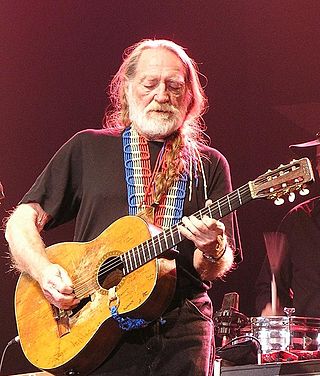
Willie Hugh Nelson is an American country singer, guitarist and songwriter. He was one of the main figures of the outlaw country subgenre that developed in the late 1960s as a reaction to the conservative restrictions of the Nashville sound. The critical success of his album Shotgun Willie (1973), combined with the critical and commercial success of Red Headed Stranger (1975) and Stardust (1978), made Nelson one of the most recognized artists in country music. Nelson has acted in over 30 films, co-authored several books, and has been involved in activism for the use of biofuels and the legalization of marijuana.
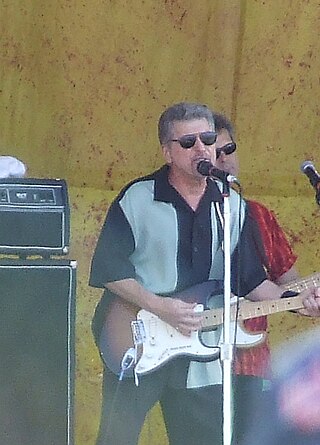
Johnny Rivers is a retired American musician. He achieved commercial success and popularity throughout the 1960s and 1970s as a singer and guitarist, characterized as a versatile and influential artist. Rivers is best known for his 1960s output, having popularized the mid-60s discotheque scene through his live rock and roll recordings at Los Angeles' Whiskey a Go Go nightclub, and later shifting to a more orchestral, soul-oriented sound during the latter half of the decade. These developments were reflected by his most notable string of hit singles between 1964 and 1968, many of them covers. They include "Memphis", "Mountain of Love", "The Seventh Son", "Secret Agent Man", "Poor Side of Town", "Baby I Need Your Lovin'", and "Summer Rain". Ultimately, Rivers landed 9 top ten hits and 17 top forty hits on US charts from 1964 to 1977.

"Folsom Prison Blues" is a song by American singer-songwriter Johnny Cash. Written in 1953, it was first recorded and released as a single in 1955, and later included on his debut studio album Johnny Cash with His Hot and Blue Guitar! (1957), as the album's eleventh track. Borrowing liberally from Gordon Jenkins' 1953 song, "Crescent City Blues", the song combines elements from two popular folk styles, the train song and the prison song, both of which Cash continued to use for the rest of his career. It was one of Cash's signature songs. Additionally, this recording was included on the compilation album All Aboard the Blue Train (1962). In June 2014, Rolling Stone ranked it No. 51 on its list of the 100 greatest country songs of all time.

John Bush Shinn III was an American country music singer, songwriter, and musician. Nicknamed the "Country Caruso", Bush was best known for his distinctive voice and for writing the song "Whiskey River", a top 10 hit for himself which also became the signature song of fellow country artist Willie Nelson. He was especially popular in his native Texas.

Shotgun Willie is the 16th studio album by American country music singer-songwriter Willie Nelson, released on June 11, 1973. The recording marks a change of style for Nelson, who later stated that the album "cleared his throat". When Nelson refused to sign an early extension of his contract with RCA Records in 1972, the label decided not to release any further recordings. Nelson hired Neil Reshen as his manager, and while Reshen negotiated with RCA, Nelson moved to Austin, Texas, where the ongoing hippie music scene at the Armadillo World Headquarters renewed his musical style. In Nashville, Nelson met producer Jerry Wexler, vice president of Atlantic Records, who was interested in his music. Reshen solved the problems with RCA and signed Nelson with Atlantic as their first country music artist.

"Blue Eyes Crying in the Rain" is a song written by songwriter Fred Rose. First recorded by Elton Britt in 1946, then made more popular by Roy Acuff in 1947, the song has been covered by many artists, including Hank Williams Sr., Johnny Russell, Charley Pride, and Elvis Presley. Most notably, the song was recorded by Willie Nelson as part of his 1975 album Red Headed Stranger. Both the song and album revived Nelson's success as a singer and recording artist.
"That Lucky Old Sun (Just Rolls Around Heaven All Day)" is a 1949 popular song with music by Beasley Smith and words by Haven Gillespie.

"Lookin' for Love" is a song written by Wanda Mallette, Bob Morrison and Patti Ryan, and recorded by American country music singer Johnny Lee. It was released in June 1980 as part of the soundtrack to the film Urban Cowboy, released that year. The background vocalists are Marcy Levy, Rosemary Butler and Tom Kelly. "Lookin' for Love" was reissued as the lead song on Lee's October 1980 album of the same name.

"Why Me" is an American country and gospel song written and recorded by American country music singer and songwriter Kris Kristofferson.
"On the Road Again" is a song written and recorded by American country music singer Willie Nelson.
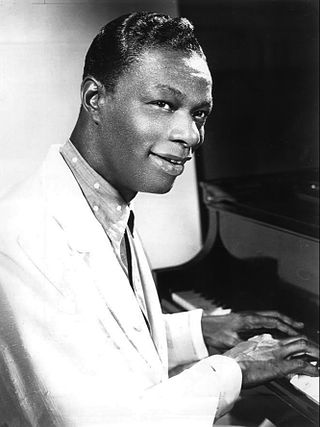
"Mona Lisa" is a popular song written by Ray Evans and Jay Livingston for the Paramount Pictures film Captain Carey, U.S.A. (1949), in which it was performed by Sergio de Karlo and a recurrent accordion motif. The title and lyrics refer to the renaissance portrait Mona Lisa painted by Leonardo da Vinci. The song won the Academy Award for Best Original Song in 1950.

John Paul Gimble was an American country musician associated with Western swing. Gimble was considered one of the most important fiddlers in the genre. He was inducted into the Rock and Roll Hall of Fame in 1999 in the early influences category as a member of Bob Wills and His Texas Playboys.
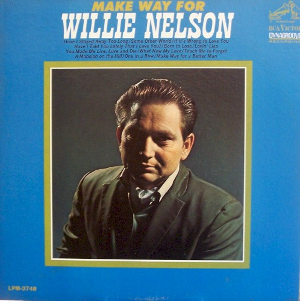
Make Way for Willie Nelson is the fifth studio album by country singer Willie Nelson.

...And Then I Wrote is the debut studio album by country singer Willie Nelson, recorded during August and September 1962 and released through Liberty Records.
"I Still Miss Someone" is a song co-written by Johnny Cash and his nephew Roy Cash, Jr. and originally recorded by American country music singer Johnny Cash. He first recorded it in 1958 as the B-side to "Don't Take Your Guns to Town".
Lukas Nelson & Promise of the Real, sometimes referred to as POTR, is a Grammy award-winning American country rock band formed in Los Angeles in 2008. The band consists of Lukas Nelson, Anthony LoGerfo, Corey McCormick, Logan Metz, and Tato Melgar (percussion). The band has released eight studio albums and two live albums as well as numerous singles and extended plays (EP). From 2015 to 2019, they toured as the backing band for Canadian musician Neil Young. With Young, the band recorded two studio albums, The Monsanto Years (2015) and The Visitor (2017), a soundtrack album, Paradox (2018), and two live albums, Earth (2016) and Noise & Flowers (2022).

The Johnny Cash discography chronicles the output of American singer Johnny Cash. His lengthy career, spanning 1954 to 2003, saw the release of 91 albums and 170 singles on several record labels. Over the years, Cash also collaborated with many of the industry's most notable artists.

"Night Life" is a song written by country music singer-songwriter Willie Nelson. Nelson was inspired to write the song during one of his trips from his home in Pasadena, Texas, to his work, singing at the Esquire Ballroom in Houston.
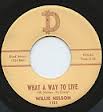
"What a Way to Live" is a song written by country music singer Willie Nelson. He recorded the song on his second session with D Records, after moving to Houston, Texas. Produced by Bill Quinn, it was cut at Gold Star Studios in March 1960.

"The Part Where I Cry" is a song written by country music singer Willie Nelson. After moving to Nashville in 1960, leveraged by the success of his songwriting, and helped by Harlan Howard, Nelson was signed by Joe Allison of Liberty Records.